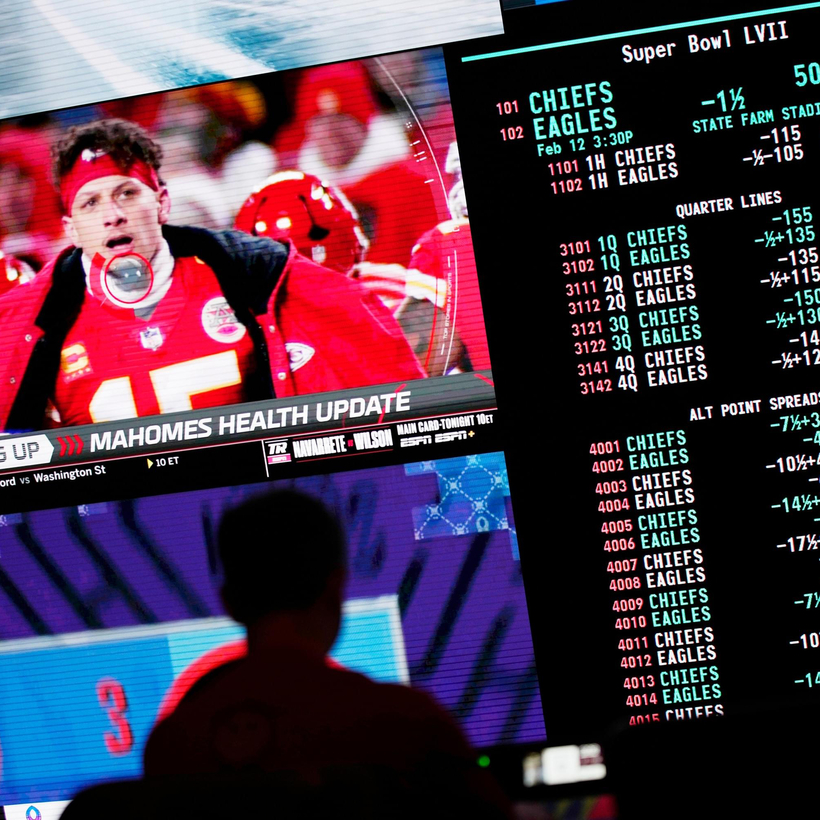In the decades to come, when the Super Bowl is called the Caesars Sportsbook Cup, FanDuel offers odds on fourth-grade T-ball, and activities historically unpopular in betting circles—such as Olympic canoeing, say—are plagued by gambling-related capsizing scandals, it’s going to seem awfully strange that as recently as 2018, wagering money on sports in the United States was mostly illegal and largely taboo.
Even now, the pro-sports landscape has the look and feel of a Casino outtake. LeBron James stars in DraftKings commercials; Fenway Park’s Green Monster, which was once just green, has a beckoning BetMGM logo front and center. Over the last seven years, the most prominent American sports leagues have partnered with betting companies, and teams in those leagues, and players on those teams, are sponsored by sportsbooks as well.


